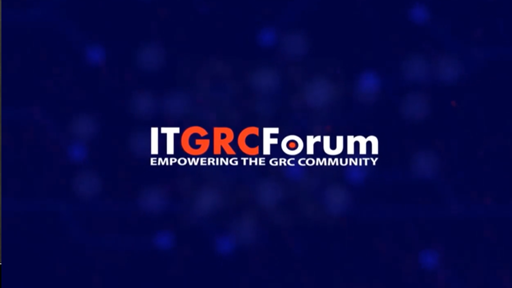Panel Discussion: Navigating PCI Security Mountains in the Cloud
Recorded: November 6 | 2013 View
Organizations outsourcing card data to the cloud face significant security risks. Storing, processing and transmitting cardholder data in the cloud brings the cloud environment into scope for the PCI Data Security Standard (PCI DSS). And as soon as an organization adds other players to the offsite card-management mix, ensuring compliance with the PCI DSS becomes increasingly challenging.
Implementing a Business-Driven Security Strategy
Recorded: October 17 | 2013 Play
Today's corporate leaders face multiple challenges, including the need to innovate in extremely competitive business climates, address highly dynamic regulatory and compliance challenges, and secure the enterprise against a wide barrage of new and evolving sophisticated threats. Security is a major consideration in the way that business and information technology systems are designed, built, operated, and managed.
Big Data Security in an Era of Social, Mobile and Cloud Computing
Recorded: September 24 | 2013 Play
Big Data is a trend that has engulfed today's IT industry and one that organizations are struggling to manage. Today's expanded IT infrastructure, including Social, Mobile and Cloud Computing, is collecting more data, including sensitive data, and now significant security risks are being compounded as the data is being concentrated in large data "lakes" such as Hadoop. As a result CIOs are looking at upgrades, new technologies and new strategies to assure security while delivering the required services.
Managing Security and Compliance in a Big Data World
Recorded: August 14 | 2013 Play
Big Data is a trend that has engulfed today's IT industry and one that organizations are struggling to manage. The size of the digital universe this year will be tenfold what it was just five years earlier. Therefore, organizations must find smarter data management approaches that enable them to effectively corral and optimize their data.
Navigating PCI Security Mountains in the Cloud
Organizations outsourcing card data to the cloud face significant security risks. As soon as an organization adds other players to the offsite card-management mix, ensuring compliance with the PCI Data Security Standard becomes increasingly challenging. Cloud users and cloud service providers need to understand what their roles and responsibilities are when it comes to protecting this data. Storing, processing and transmitting cardholder data in the cloud brings the cloud environment into scope for PCI-DSS.
Enterprise Risk Management: a Holistic Approach
When: April 4 | 2013 Play!
Organizations are suffering from volatility across all risk types, and need to re-think their enterprise risk strategy. In a landscape filled with new threats and new regulations, risk management has never been more critical to senior leaders in all sectors, and gaining a complete view of an organization's risk exposure is increasing in complexity.
Using Auto-Classification to Improve Your Information Governance Practices
Recorded: April 2 | 2013 Watch
Information Governance is an essential element to your compliance planning and execution. With evolving regulatory demands and increased litigation, the imperative to gain control over business content has never been more critical. Experts know that managing the retention and disposition of business information reduces litigation risk and legal discovery costs. But with the best of plans, there are challenges to face and decisions to make. Add in the maturation of technology and security issues, and the challenges seem to grow exponentially.
Seeing the Big Picture with Big Data Discovery
Recorded: March 18 | 2013 View
Big Data is a trend that has engulfed today's IT industry and one that organizations are struggling to manage. According to IDC, the amount of information created, captured or replicated has exceeded available storage for the first time since 2007, and many organization's are spending far more time looking for information than actually using it. The size of the digital universe this year will be tenfold what it was just five years earlier. Therefore, organizations must find smarter data management approaches that enable them to effectively corral and optimize their data.
How to Select the Right MDM and BYOD Security Solution for Your Organization
Recorded: February 21 | 2013 Play
69% of organizations have employees using mobile devices to connect to their corporate network, and Gartner predicts that through 2017, 90% of enterprises will have two or more mobile operating systems to support. This brings not only security concerns, but practical problems with managing a variety of devices that can contain both personal and corporate data. As a result, mobile device management (MDM) and bring your own device (BYOD) solutions for the enterprise are exploding into the market. Choosing the right solution will increase enterprise efficiency, while maintaining security and regulatory compliance, without a massive burden on IT.
Managing Enterprise Risk in the New Environment
Recorded: October 3 | 2012
For many years complying with government standards and industry regulations has been seen as a check box in the lengthy list of IT security tasks. However, most recent changes in the environment and increased cyber security threats have led to a rethinking of this approach. With more than 365 security incidents reported in 2011 affecting over 126 million records, many organizations are rethinking the way they approach security, risk management, and compliance.
Enabling Your Mobile Security Strategy for eGRC
The rapid evolution of consumer devices and a growing demand from employees are changing the ways in which organizations deliver mobility solutions to the workforce. There are any number of new mobile devices and emerging technologies to help today's professionals do their jobs in any location, and these technologies bring a range of new challenges, from security, compliance and risk management, to cost and human capital management.
How to Select the Right GRC Solution for Your Organization
Governance, risk management and compliance (GRC) processes are extensive; they are how an organization is directed and managed to achieve goals, considering risks to achievement, and complying with applicable laws and regulations.
Implementing a Risk Management Framework for Continuous Compliance
Senior management at all levels are pressured to improve their organizations risk management capabilities. In a landscape filled with new threats and new regulations, risk management has never been more critical to senior leaders in all sectors.
Auditing the Cloud; What is the necessary comfort level?
Recorded: February 1 | 2012
Cloud Computing has been hailed as the long sought after answer of low cost computing , where users can remotely store their data into the cloud and enjoy the on-demand high quality applications and services from a shared platform of computing resources. By outsourcing their data storage, users can be relieved from the burden of local data storage and maintenance, in some cases eliminating IT departments all together.
Beyond the PCI Compliance Checkbox: Establishing a Foundation for Security that Protects the Organization
The Payment Card Industry Data Security Standard (PCI DSS) provides data protection requirements for organizations that process card payments. These requirements have even been adopted as law by some US states (e.g., Minnesota, Nevada, Washington). While organizations that fully comply with PCI DSS are considered compliant credit-card processors, compliance and security are not one in the same.
Aligning GRC Technology with your GRC Program
Recorded: October 12 | 2011
Today, enterprises around the globe operate IT processes covering areas such as security, availability, infrastructure and IT project management. These processes support the core business processes that organizations use to operate successfully.
Tokenization: Secure Payment Data & Simplify PCI Compliance
This event will discuss an overall payment security landscape, the costs associated with managing payment data, and the benefits of Tokenization. Attendees will learn how payment security solutions, such as encryption and tokenization can go beyond complying with PCI–DSS requirements and reduce the scope of PCI, while keeping data safe and alleviating the overall impact on your business.
Tackling Compliance in a Multi-Regulatory World: Best Practices Revealed
As the number of regulations that affect Global 2000 organizations can easily exceed a dozen, many companies struggle to map multiple frameworks and specifications across configurations settings. This leads to cost-inefficiency, inaccuracies, and often audit fatigue.
PCI Compliance Guidelines - Stay Ahead of the Curve
Recorded: 2011 Listen Now
Annual costs of data management are soaring. So how can your business stay ahead of the curve to achieve and maintain compliance with the Payment Card Industry Data Security Standards (PCI DSS) and still deal with potentially millions of points of vulnerability?
Internal Gateway Tokenization: A Strategy to Reduce Risks & Lock-in
This session will focus on the value of internal tokenization in reducing scope and potential audit costs at the datacenter, with a specific focus on post-payment applications, databases, loyalty tracking systems, data warehousing, and business applications.
Social media in your business: The Risks vs. The Opportunities
The widespread private use by employees is embraced by many businesses in their communications. The policies and procedures on the proper business use of social media should address the protection of intellectual property, but also consider and respect the interest of preserving the public domain and fair use/dealing, of stimulating fair competition and innovation.
PCI DSS 2.0 & Virtualization - Are You Compliant?
Understanding and complying with the PCI Data Security Standard (PCI DSS) can be a daunting task - especially if your organization has limited time and resources. The new PCI DSS 2.0 standard, which took effect Jan. 1, requires testing a virtualized environment to ensure that if you put multiple accounts onto a single processor, there is still segregation of data and all the data is protected.
Integrating Risk Management Systems to Optimize GRC
Integrating IT Risk Management systems is critical for organizations who want to secure their IT investments from internal and external risks related to information security, infrastructure, project management and business continuity processes.














